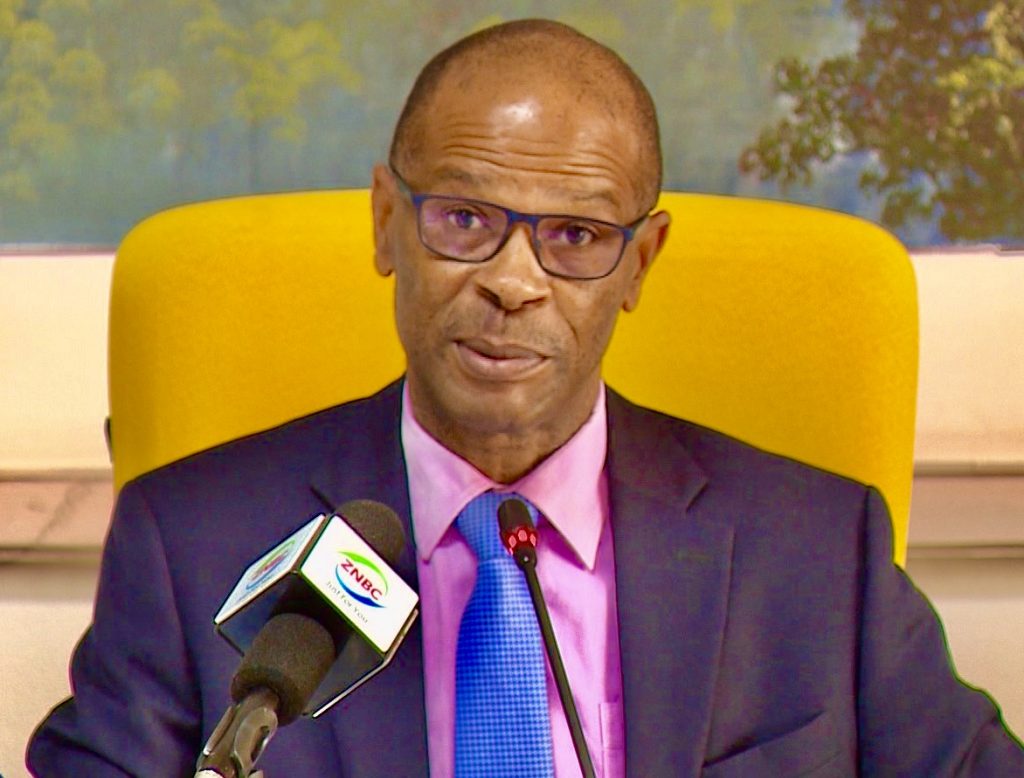LUSAKA (The Business Telegraph): With a ferocious currency rout as agriculture input and petroleum demand builds at a time reserves are as feeble to decade lows at below 3-months of import cover. Arrears are being dismantled, liquidity getting to suppliers and contractors but because Zambia is a net importer, all these actions are pushing dollar demand higher. The copper producer grapples with fiscal strains as it navigates a debt restructure of its $11.7billion external debt at a time disease pandemic has weighed the world. The Saturday of 22 August the red metal producer dusked to a sudden shift in monetary policy leadership when the appointment of ex-banker and former finance deputy minister, then deputy secretary to the cabinet for economic and finance affairs Christopher Mvunga taking over from Dr. Denny Kalyalya.
Market expectations of Mvunga. The kwacha has been on a losing streak and is almost approaching 20 for a unit of dollar which the central bank has been struggling to tame given the times the world is in. COVID-19 has ravaged markets to render traditional economic correlations meaningless and as such monetary policy has shifted not only in Zambia to prioritize growth which has been eroded significantly while inflation and currency depreciation ranks second. Zambia’s recession forecast stands at 4.2% for 2020 as consumer demand shriveled forcing a 350 basis points rate cut to the lowest ever policy rate (8%) seen since the benchmark policy rate started being tracked in 2012.
Mvunga comes at a time when a currency rout could brew cost-push inflationary effects that would unwind the current decline in consumer price index fueled by a food price ease on the back of a bumper harvest. Currency driven inflation is a bigger evil as it will surely weigh business fabric which is already in the doldrums (<50:-Purchasing Managers Index) for 17 straight months below the 48.3 series average. As though not enough, credit risks are widening by the day despite the central banks liquidity injections through presence in Open Market Operations – OMO and balance sheet expansion programs. The business ecosystem still bears the brunt of disease pandemic while effects of power bottlenecks and weak currencies driving input prices higher still weigh.
Despite yields falling significantly on the treasury bill curve end 150-425bps bond yields have lagged and still remain elevated. This causes a repricing challenge for term funding as the commercial banks looking to the yield curve for pricing. One of the reason for this lag has been the inertia around the Targeted Medium Term Refinance Facility – TMTRF which has clogged the transmission mechanism of lower funding cost (MPR+100bps) to commercial banks to allow benefits to be passed to credit counter-parties. This is another key area that the market is looking to the new central bank governor to address.
Kwacha screaming Nitrogen Chemicals of Zambia. Drifting a little from markets but the kwacha could also be screaming the need for self sufficiency in fertilizer manufacture locally as the Farmer Input Support Program – FISP cycle lumps the markets with significant dollar demand which could be absorbed more effectively through allowing Nitrogen Chemicals of Zambia to produce fertilizers for the FISP program. The exchange rate has revealed key structural issues top being the need to step up manufacturing potential and exports to assist shore foreign exchange buffers.
Low approval rate – big chance of success through agility. Despite immense criticism on experience versus his predecessor, Mvunga’s approval rate is low which widens his chances of success through agility and calculated decision making. It is about a dry point of construction that the central bank has been very reactive historically in addressing crises which clearly require a different yet tactical approach to managing realistic economic issues whose traditional economic correlations have weakened over the years causing dislocations that require intelligent solutions executed in an agile fashion. Just last week, the US Fed at Jackson Hole Wyoming discarded the famous Phillips Curve (relationships between unemployment and inflation) that has for years weakened and will going forward address a tighter labor market while worrying less about inflation. This era requires decision makers as the ones 2011 under Dr. Michael Gondwe’s clock which saw drastic capitalization changes for both local and international banks which have benefited the Zambian economy.
“I’d rather be central bank Governor for 6-7 well capitalized banks than 17 banks that can not even fund a single mall,” Dr. Gondwe said in 2011. This was at a time 4-5 banks syndicated for $20million deals to build a mall which was a one bank deal according to his PTA bank days.
The Zambian economy looks to a caliber of central bankers with an evolved skill set that will make intelligent and realistic decisions which aid solutions. However with that said, the fiscal still need to consolidate for stability in monetary policy because the two work together. Currently the disconnect is widely evident. Central and commercial banking are all types of banking and as such having an ex-banker to head monetary policy is not an issue but the decisions that he will make should be the basis on which the country should measure Mvunga’s deliverables which range from price to financial stability (the famous dual role).
Offshore markets calmer. As at close of business 01 September Non Deliverable Forward- NDF yields were lower 200bps across the curve while Zambia’s dollar bonds were 50bps lower as markets continue to price in calm after announcement of Deputy Governor Operations who will hold monetary policy mantle before ratification of the substantive Governor by parliament. However sudden changes are met with reactions in the market in the first few days then met with calm as acceptance of change claws back in after which players await what the new policy direction is. Key for Zambia will be the estimates of revenues and expenditure dubbed the annual budget to be presented on the 25 September. This will provide clearer fiscal policy direction in extraordinarily uncertain times.
The Kwacha Arbitrageur

